Should Ships Help Migrants At Sea? – A Captain’s Perspective
Safety of Life at Sea has been endorsed since the very first day trade extended through the dimensions of shipping. Shipowner’s perspective about shipping as a profit making business is innate and has proved quite fruitful so far.
However, public welfare being a perpetual part of trade and associated humanitarian grounds aid to make trade more responsible. The means of inculcating this practice have been encouraged by providing legitimate immunity to seafarers in their actions gaining priority over commercial reasons while rescuing lives at sea.
The basic principles to be kept in mind while keeping a bridge lookout are safety of navigation, lookout for survivors or persons in distress and safety of the ship. The issue of saving lives at sea remains undisputed; however there were certain incidents which questioned levels of participation of Ships and Shipmasters .
Incident 1: Near the Gulf of Aden, a bulk carrier underway received a distress call from two boats on fire. The ship’s crew assumed that they were survivors and informed the MRCC. The vessel was directed upon to proceed for assistance and thus took the risk of going closer to the boats in High Risk Piracy area. On coming closer one of the crew members sighted arms in one of the boats. The vessel immediately diverted widely, informed MRCC and thus prudent action of master saved the vessel as it narrowly escaped a pirate attack.
Incident 2: After sailing out from Port Moresby, a chemical tanker received a distress call around 90 miles from the coast. The vessel was headed for Port Geelong, Australia. The vessel informed the Coastal state and was directed to proceed for assistance. A total of 57 survivors were rescued from a ferry which was about to sink. The vessel informed its flag state and the coastal state. It was directed to proceed towards Port Geelong and disembark the survivors and hand them over to the coastal authorities. While the vessel was 30 miles off the coast, during night 34 of the survivors jumped off the vessel into water and escaped in another boat waiting near the coast. The vessel informed the coastguard and was boarded by the authorities in Port of Geelong. Coastguard authorities unveiled an illegal immigration racket behind this incident. This was not once they had carried out such activities in coastal waters to facilitate illegal immigrants through sea going ships. On some incidents they were reported to carry hidden arms and weapons too.
This incident was an eye opener for various Coastal States and IMO wherein life of seafarers was endangered while they were complying with International Convention for Maritime Search and Rescue. Master, mate and other seafarers were directly involved with such survivors while providing food and other necessities onboard, mostly unaware of the intentions of such illegal immigrants. They even pose a threat to the safety of the ship and its crew. It jeopardised the valiant efforts and bravado exhibited by seafarers on numerous occasions to save lives at sea.

International Maritime Organisation (IMO) which functions as a legal body for regulating shipping industry, ensuring compliance with safety standards recommended the International Convention on Maritime Search and Rescue(IAMSAR), Annex 12 to Convention on International Civil Aviation, International Convention for Safety of Life at Sea(SOLAS ) Reg. V/33 makes it obligatory for shipmasters to assist others in distress at sea whenever they can safely do so.
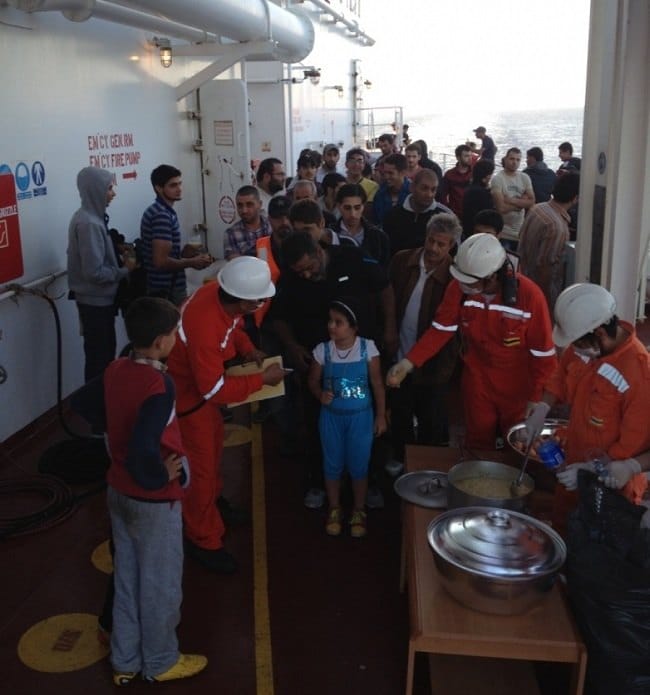
Many states have accepted this obligation and established national SAR organisations to provide aeronautical and maritime SAR coordination and effective and economical SAR services on a 24 hours basis. A basic, practical, and humanitarian effect of having a global SAR system is that it eliminates the need for each state to provide SAR services for its own citizens wherever they travel world-wide. Instead, the globe Is divided into search and rescue regions (SRRs), each with a rescue co-ordination centre (RCC) and Associated SAR services, which assist anyone in distress within the SRR without regard to nationality or circumstances.
Unanimously, the rescue of survivors will be a prime objective whenever the situation arises, the illegitimate practices for migration can be diminished if coastal states play a bigger role in Search and Rescue. IMO has passed resolution FAL 11(37) regarding responsibilities of States, Masters Regarding Handling Stowaways. The resolution however does not specifically deals in cases where the purpose is of a planned and illegal migration in the disguise of survival. For e.g. Referring to incident no. 2 above the survivors could have been handed over or transferred from the vessel to Coastal authorities or coastguard Facilities in the Port of Departure itself i.e. Port Moresby. In certain cases after rescuing the survivors arrangements can be made to hand them over to the nearest coastal state rather than taking them to the port of destination or any other convenient port. Indefinite stay of stowaways, survivors onboard should be discouraged. The nearest costal states should have an obligatory role to arrange for speedy transfer and repatriation of survivors to their country once their nationality has been established .
If the situation permits, In coastal waters rescue operations should be led by the coastguard vessels and eventually survivors should be embarked upon their vessels or other facilities. However in high seas where circumstances are adverse merchant ships would continue to be the most reliable and appropriate mean to save lives.
Steps are being taken to address the growing concern of migrants and the lives being lost at sea. Recently, International Chamber of Shipping (ICS) came up with guidelines for large scale rescue operations at the sea. However, it spite of all the guidelines and legal obligations, it would always be a tough decision to make for seafarers when it comes to rescuing migrants at sea.
Over to you?
As a seafarer, what are your views on saving lives (especially those of migrants) at the sea.
Let’s know in the comments below or start a discussion at forums.marineinsight.com
Do you have info to share with us ? Suggest a correction

About Author
Abhishek Bhanawat is a chief officer who has worked on various types of tankers. He specializes in Crude Oil and Product Tankers. He is highly passionate about his work and loves to sail.
Latest Maritime law Articles You Would Like:
Latest News
- What is the Purpose of DG Shipping?
- What are Logistics Risks?
- How Port and Terminal Operators Can Control Emissions?
- Minimum Quantity Commitment (MQC) and Liquidated Damages in Container Shipping: Concept and Relevance
- MARPOL (The International Convention for Prevention of Marine Pollution For Ships): The Ultimate Guide
- The Ultimate Shipping Container Dimensions Guide
Subscribe To Our Newsletters
By subscribing, you agree to our Privacy Policy and may receive occasional deal communications; you can unsubscribe anytime.



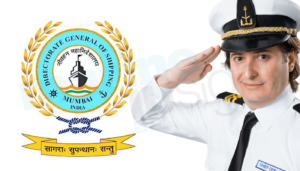
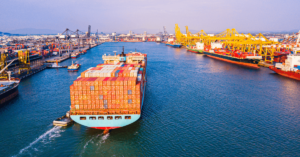
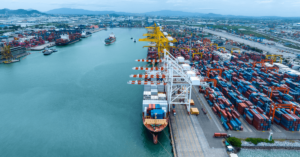
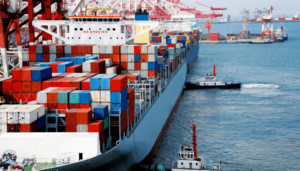
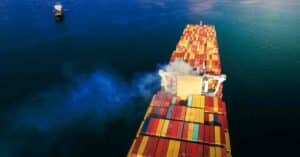


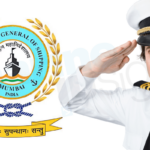
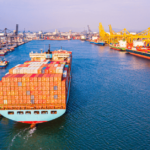
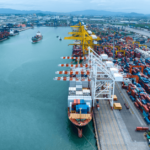
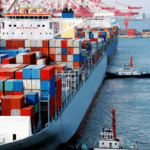
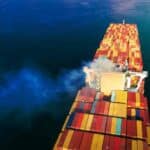

Capt. I couldn’t agree with you more on the issues you raised.
My biggest worry as a retired seafarer is the danger they are placing the lives of seafarers in by these their selfish acts.
The reality of the matter is that merchant vessels are going to shy away from helping genuine survivors. As we all know emergencies at sea are part and parcel of shipping and therefore such cases will arise where seafarers will need assistance sometimes because of their perculier situation.
That is why I feel the international community should not only talk about these acts but ensure that concrete steps are taken to stop this practice.
Pirates particularly should be dealt with in a manner to make it unattractive for them to engage in such acts. Governments whose citizens engage in the practice of putting innocent people into rust buckets and abandoning them at sea should be up and doing. I am sure they can track such organised criminals if they really want to.
The UN should back all efforts to bring such countries to book by applying some sanctions if the tai to act in that regard.
Yep, it’s truly a working conundrum with no immediate solution to the fraction of illegal immigration facilitated; you just can’t ignore a distress call even if it is fraudulaant. In the end the only solution available is to address the failures in mankind that create the need for refugees and pirates. The largest part of that solution is in the production of food and water, if we spent 25% of what we did on military hardware since WWII, the world would be fed, powered by hydrogen which delivers pure fresh water along with electricity, and we would be living on large space stations by now.
I was a seagoing Captain for 18 yrs trained in England up tp Master Mariner status thus I am competently trained but on one Command I was left wth s Stowaway fm Somalia and I took over the Command in Aden Yemen and stuck wth this fellow all the way to the U.S. where he was taken off by the Yanks.Then I picked up a coastal crafts crew to the nearest port in the Mallacca Straits on the Malay side to local Coastguards.I was Pirated Twice going in and out fm Singapore.No help fm either Singapore or Indonesia.My Cadet wss slashed wth a parang fm one of the Pirates and we chased them off wth my newly acquired Water Csnnon.No thks fm anybody nor fm Burma my Country.Thats the kind of uncaring attitude faced by us Sailors of the 7 Seas.Shame.
Thanks for this Forum as our cries for Help or Assistance R generally unforthcoming and the Pirscy problems remain and not published enuf. Not enuf ” Captain Phillips storeys even Tom Hanks efforys were enuf to stit the Folks he shud hv gotten an OSCAR FOR HIS PORTRAYAL OF A CAPTAIN AT SEA AT CONSTANT RISKS MORE THAN A SOLDIER. AT LRAST HE IS READY FOR BATTLE WE R NOT.